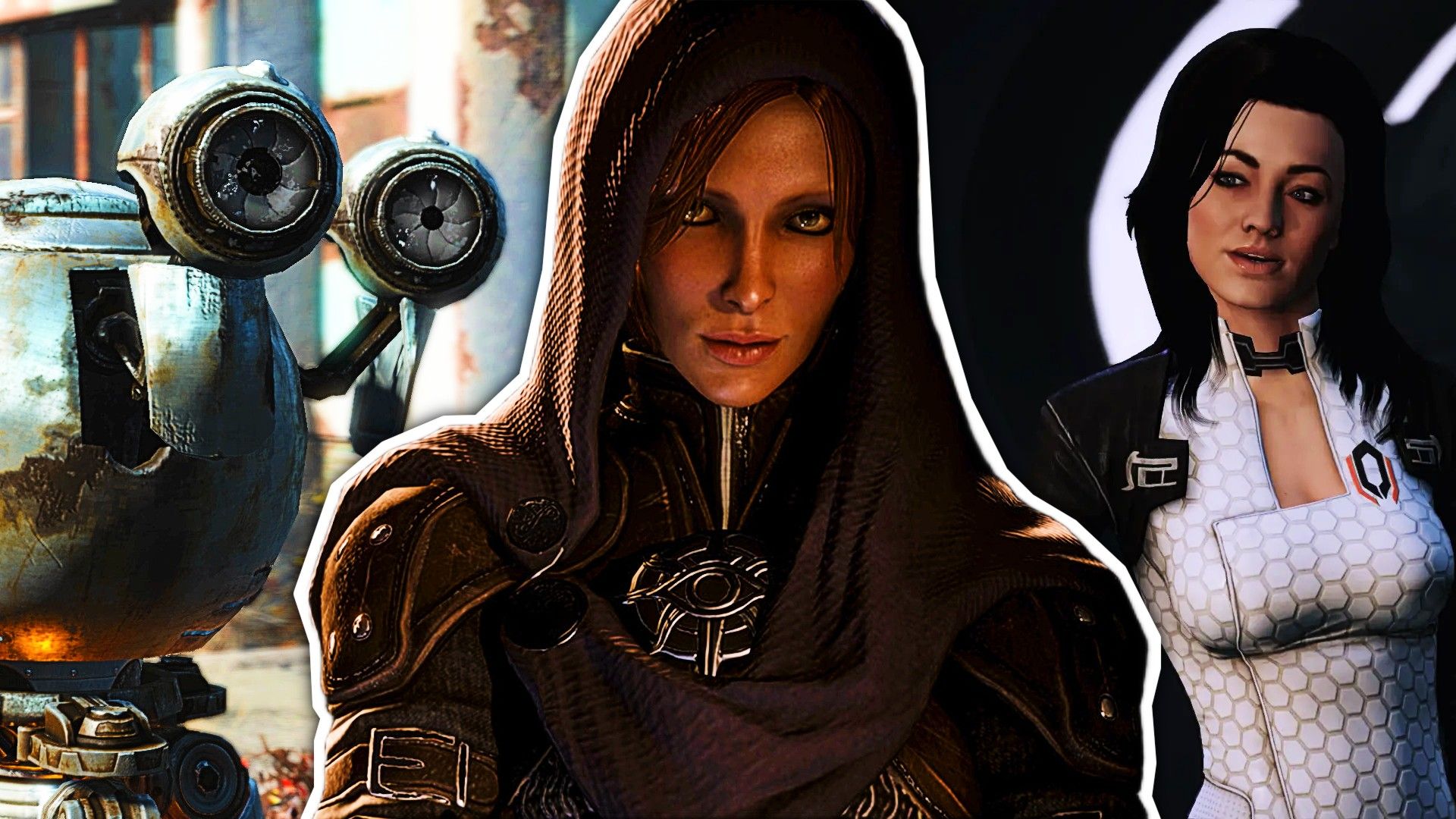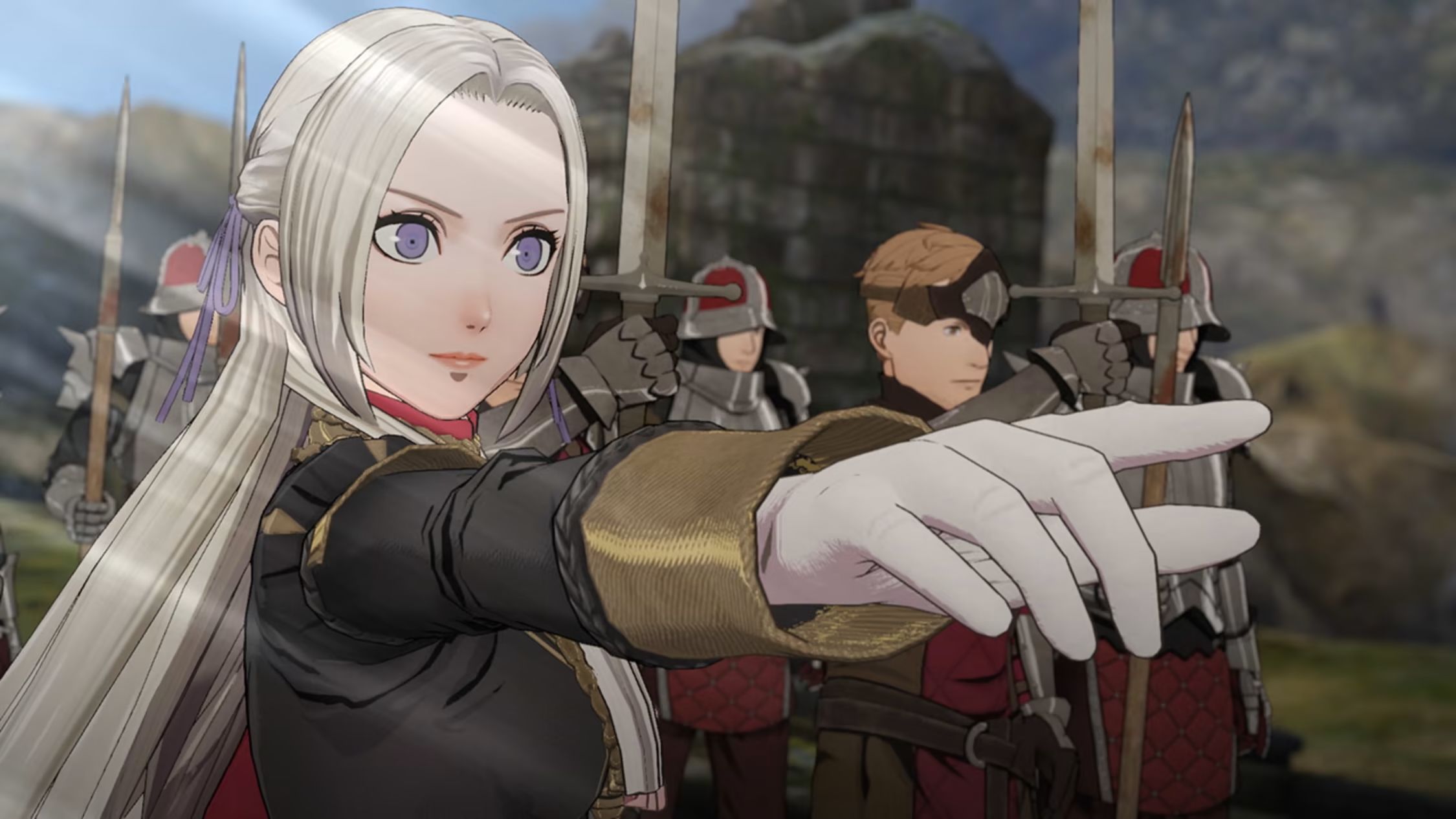Personal preferences regarding game mechanics usually dictate the types of games we play. For me, a big selling point is player choice, and one of my favorite ways that it manifests is through romance mechanics. Whether it grants your party better abilities, changes the story, or makes a character happier, I am an absolute sucker for playing matchmaker in video games.
Light spoilers ahead for Mass Effect and Fire Emblem plot points (but nothing that will stop you from playing the games).

Related
10 Critically Acclaimed Games That Are Also Dating Sims
Some blockbuster games offer dating sim level romance features.
Romance Increases Replayability to See How Different Pairings Work Out
Timeless games offer some kind of incentive to get you to replay them, usually through tight gameplay, a compelling narrative, or by giving the player different ways to play in subsequent playthroughs. The latter often refers to altering your playstyle or using different characters in your party, but pairing people up with different partners is as good a reason as any to go through a game a second or third time.
For example, Fire Emblem games have a storied history of allowing your units to build affinity with each other through support conversations. By having them fight next to one another, they slowly establish a rapport and converse several times throughout the game. These conversations not only give battlefield boosts, but often provide insights about the character.
Many of them are overtly romantic, and although you may think you’ve found the perfect pairing, be it for gameplay purposes or because their personalities mesh well together, there could be a better one you don’t know about.
Characters Reveal More Intimate Details About Themselves
With most games, as you gather party members and progress through the story, you’ll slowly learn more about them. However, much like in real life, there are certain things they’ll only discuss with those who are especially close to them. Even the toughest characters you come across likely have a weak spot, but you’ll never see it, or it won’t be expanded upon, unless you initiate a romance with them.
Jack from Mass Effect 2, Shadowheart from Baldur’s Gate 3, and Edelgard from Fire Emblem: Three Houses are but a few characters that reveal a lot more about themselves if you become romantically involved. For instance, Jack is especially bitter and vengeful, but if a male Shepard takes the time to get to know her and romances her, you’ll witness one of the most wholesome scenes in the entire series, and that’s no small feat.
It’s a Great Conversation Topic When Discussing a Game
There’s a certain inexplicable curiosity people seem to have when it comes to romance in video games. Every single time I’ve discussed the Mass Effect series with someone, the first question I was asked wasn’t regarding whether I was paragon or renegade, or what ending I chose in Mass Effect 3; it was who my Shepard romanced.
When executed correctly, romance subplots are incredibly satisfying, and when you’ve completed them, it’s only natural for you to inquire with others about who their characters ended up with. I mentioned Mass Effect, but The Witcher 3: Wild Hunt, the Persona games, and the Fire Emblem franchise all ask you to make tough choices, and romance is definitely one of them. Though you often hear of “shipping wars” in anime and other fictional mediums, you might be surprised how adamantly people will defend their views on whether certain video game characters should end up together.
These conversations are also great for the perspective they provide. As mentioned, romance subplots tend to reveal deeper aspects of a character. Some people may change their entire outlook on a character after you provide information they weren’t able to get themselves since they took another route romantically.
Romance Subplots Can Inspire Character Growth
Besides learning more about a character, many games use romance mechanics to fuel their development, be it positive or negative. Knowing that you have positively affected a character enough to make them a better person is gratifying, but it can be just as fun to see how deep the rabbit hole goes towards corrupting them.
Ashley Williams and Kaidan Alenko in Mass Effect are great examples of what can happen when the protagonist has a profound impact on their party’s personalities. Ashley begins as a very human-first character who isn’t outright xenophobic, but always prioritizes humanity. However, if a male Shepard is romancing her, she survives Virmire, and you respond with paragon choices when speaking with her, she develops a friendlier outlook towards alien races.
Conversely, if a female Shepard is romancing Kaiden and repeats the same steps, but responds to him with renegade choices, he becomes less open-minded and hostile against non-humans.
Some Pairings Change the Story or Add to the Narrative
In games where players have a degree of control over romance, it’s frequently a bonus feature or simply something extra you can opt to do. Some take this a step further though, and the pairings you choose could have repercussions on the overall narrative.
In Fire Emblem: Awakening, if a male Robin romances Lucina, you’ll get a bonus heart-wrenching scene between the two at a pivotal point in the story. Likewise, if a female Robin is romancing Chrom, a similar event occurs around the same time. The Mass Effect games, Cyberpunk 2077, The Witcher 3: Wild Hunt, and the Dragon Age games all feature romance subplots that enhance the game’s story in some way, should you choose to indulge in them (and you should).
There are even entire franchises, such as Harvest Moon and Rune Factory, where a critical gameplay component is finding a partner for your character. Visual novels are similar in that the routes and endings are contingent on who you have the main character romance, which almost always has the story playing out in radically different ways.
It Just Feels Good to See Some Characters Happy
This last point is a simple one, but part of the satisfaction of playing matchmaker in a game is seeing how fulfilled the characters become. There are so many games out there with somber tones and depressing storylines. Sometimes the joy you get from a romance is seeing someone who’s down on their luck being happy for a change.
Marianne in Fire Emblem: Three Houses is quite anti-social, and is convinced her very presence around others will bring them misfortune. About the only happiness she exhibits is when she’s with her friend, Hilda, or when she’s tending to animals.
If a male Byleth romances her, you’ll be treated to a special scene after beating the final map where she thanks him for being there for her. She even gives him a ring, then vows to keep getting stronger, and affirms that she’ll always be at his side. I won’t spoil anything, but I strongly encourage exploring her support conversations, as it makes this happiness and growth even more gratifying.
It’s often a small addition to games, but romance mechanics can substantially enhance your experience, if done correctly. The results of your efforts can be as trivial as party members occasionally acknowledging the romance in conversation, to something that alters the direction of the plot. Regardless, being given that extra bit of choice is always a welcome addition in my book.















Leave a Comment
Your email address will not be published. Required fields are marked *